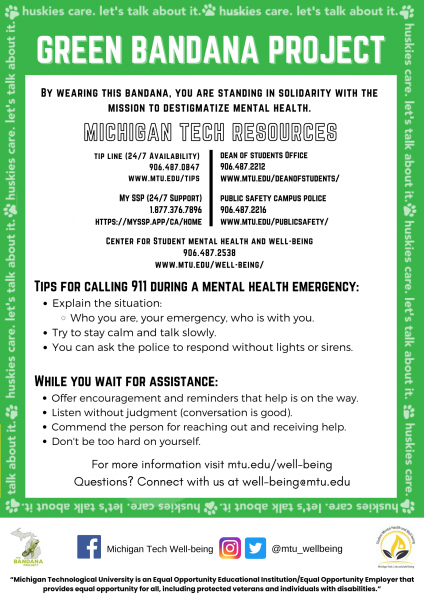The Bandana Project was founded on the University of Wisconsin-Madison campus in 2016. The Green Bandana project is a simple – yet innovative suicide prevention campaign and mental health awareness movement that uses backpacks and bandanas to support peers.
What exactly is the Green Bandana Project?
- Spreading awareness and resources for those with mental health illnesses
- Ending the stigma around mental health
- Being an advocate and reinforcing solidarity #letstalkaboutit
Members tie a green bandana to their backpacks to signify they are in possession of region-specific and national resources (shown below). Members pledge to support the mental health of individuals and reject the stigma associated with mental illness. The Green Bandana project normalizes and de-stigmatizes getting help while providing invaluable, unspoken solidarity with those struggling.
The Pledge:
- I will listen if you need someone to talk to.
- I will talk to someone if I need to be listened to.
- I will help you find someone to talk to if you need more support.
- I will find someone to talk to if I need more support.
- I will be accepting. I will be honest.
- I will see a person in need of support, and not just their challenges.
- With this pledge, I am declaring support for those dealing with depression and/or anxiety. You can talk to me. I want to help. You are way too important to feel alone today.
You are responsible for:
- Handing out resource cards and explaining what they are
- Wearing the bandana
You are NOT responsible for:
- Providing mental health counseling
- Putting yourself or others at risk in a mental health situation
Where to get a Green Bandana:
- HuskyFan (Fisher Hall – across from 136)
- The 3rd floor of the Admin (The Center for Student Mental Health and Well-being)
- Admin 234
